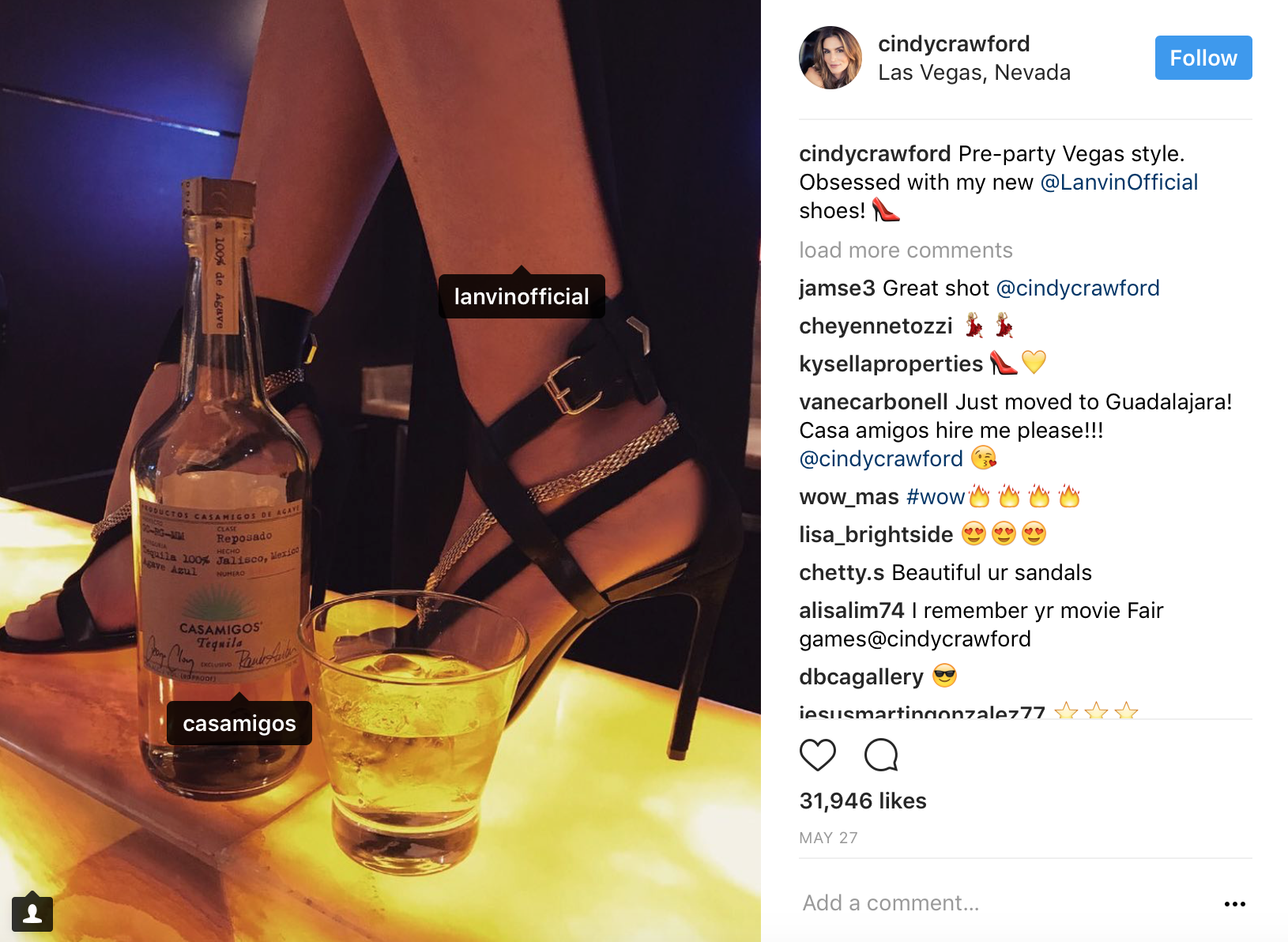
image: @CindyCrawford
“Rarely has a sale been as lucrative as the $1 billion the actor and two partners could fetch for Casamigos, the tequila brand they founded only four years ago.” That is what Businessweek wrote of Rande Gerber, George Clooney, and real estate tycoon Michael Meldman’s Casamigos brand.
Yes, Casamigos, which translates to “house of friends,” was founded just four years ago as a private collection of tequilas meant just for Gerber and Clooney’s friends and family. However, as noted by CNBC, “In 2013, the team brought the label public when they had to get licensed to continue making the tequila.”
Star Power
Since then, the brand has taken off. Last year, it more than doubled its volume, and as of January, Casamigos was the fastest-growing premium tequila in the U.S. How did they build such a big brand so quickly, you ask? Well, there is star power, for one thing. Casamigos is, after all, not the first celebrity-fronted success story.
In 2014, Apple Inc. acquired Beats Electronics, a headphone maker created by rapper Dr. Dre and music industry executive Jimmy Iovine eight years earlier, for $3 billion. According to Bloomberg, actress Jessica Alba’s Honest Co., a household products maker, drew interest from giant Unilever last year, according to a person familiar with the matter.
Gwyneth Paltrow’s Goop empire is likely not far behind, and Jessica Simpson’s lifestyle brand was valued at over $1 billion in 2014. Also up there on the wildly successful celebrity brands list: Sean John, the men’s lifestyle brand founded 18 years ago by hip-hop entrepreneur Sean “Diddy” Combs (Forbes estimated that Combs personally netted $62 million in 2015 from his business ventures).
One thing that is universal across the board when it comes to celebrity ventures, of course, is the promotion of the brand by the famous face, and Casamigos is certainly no exception. Billboards and delivery trucks feature Clooney and Gerber – the latter of which is a nightlife entrepreneur and husband to original supermodel Cindy Crawford – drinking Casamigos, and the company’s Instagram account is awash with photos of them.
Problematic Marketing?
More interesting, however, is the presence of Casamigos branding in an array of photos on Gerber and wife Cindy Crawford’s own personal Instagram accounts, which boast a collective following of nearly 3 million. (Note: Neither Clooney nor other main partner Meldman maintain public Instagram accounts). Over the past year alone, Gerber has posted about Casamigos about 62 times, and Crawford has posted about it 27 times – albeit without any disclosures.
As we know by now, the Federal Trade Commission (“FTC”) requires that when a party is compensated (with money, free products or other perks) to endorse or promote a product or brand outside of a traditional advertising medium, the parties must disclose this to consumers, usually by way of “#Ad,” “Ad,” or “Sponsored.” This same rule also applies to the promotion of a brand by a party that maintains a “material connection” – such as “a business or family relationship” – with that brand.
Problematic is the fact that neither Gerber nor Crawford disclosed their relationship to the brand in their endorsements of it on Instagram. As such, in addition to an A-list actor fronting the brand’s campaigns, the rise of Casamigos comes hand-in-hand with legally questionable marketing tactics, as well – something buyer Diageo Plc. should pay close attention to going forward given the FTC’s new interest in high profile truth-in-advertising fails.







